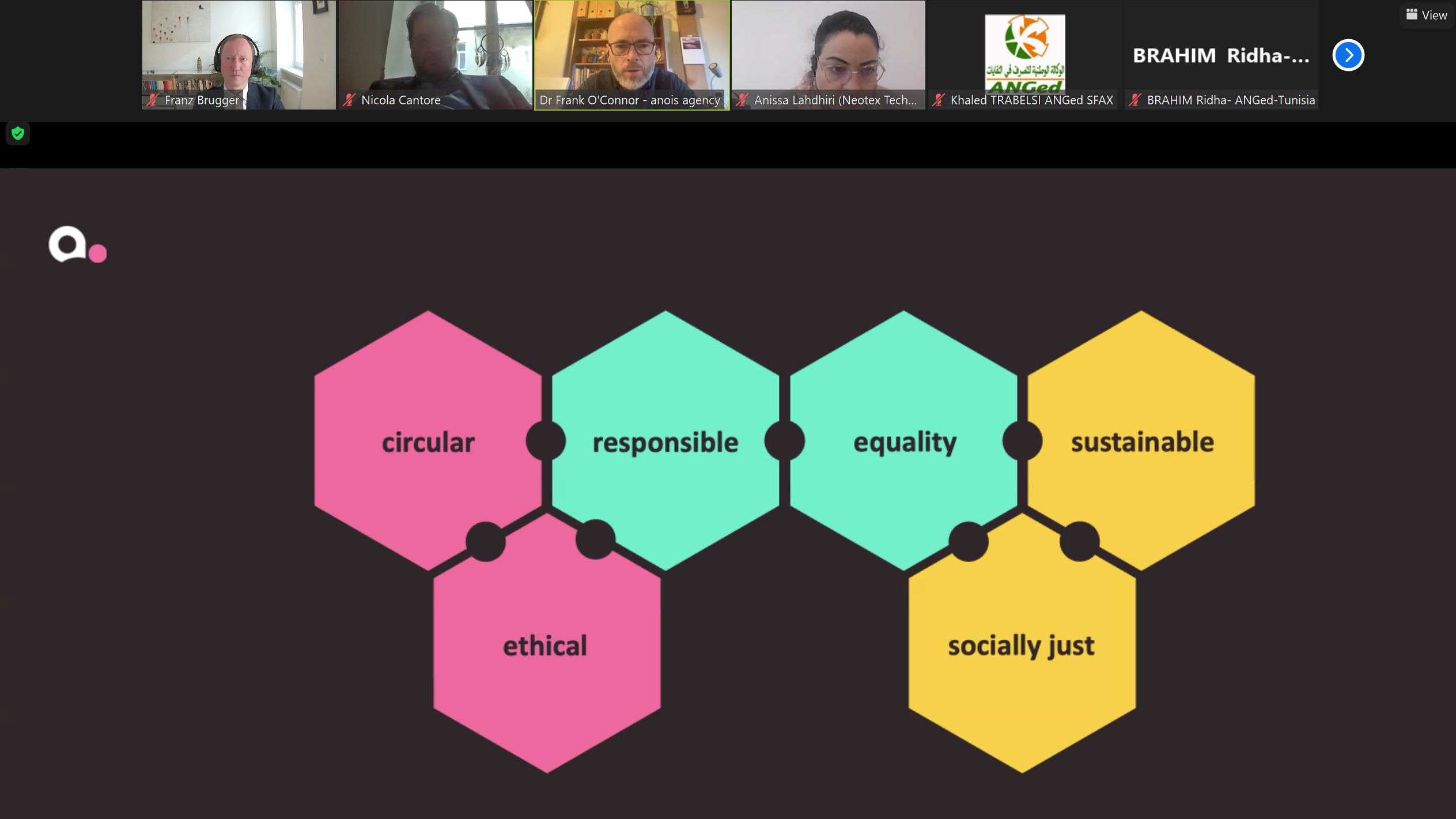Industrial policy and circular economy course for policymakers from Lebanon, Morocco and Tunisia
25 March 2022

VIENNA, 25 March 2022 - Trends in resource use and energy consumption indicate that current forms of production and consumption along product value chains are not sustainable in the long term. Therefore, Sustainable Development Goal 12 is to "ensure sustainable production and consumption patterns” and Sustainable Development Goal 9 includes a target to “upgrade infrastructure and retrofit industries to make them sustainable, with increased resource-use efficiency and greater adoption of clean and environmentally sound technologies and industrial processes” by 2030.
The multidimensionality of the 2030 Agenda for Sustainable Development, covering economic, social and environmental targets, challenges policymakers to engineer innovative policy solutions to reconcile the objectives of industrialization with the transition to a circular economy, and triggers sustainable practices of resource management and consumer habits. All this calls for new approaches towards inclusive and sustainable industrial development. Industrial policies, among other national policies, are critically important in promoting a just transition towards a circular economy.
In this context, UNIDO conducted a four-day online course on “Industrial policies for a circular economy”, generously supported by the Italian Ministry of Foreign Affairs and International Cooperation. The course hosted policymakers from the ministries of industry, economy, or similar from Lebanon, Morocco and Tunisia.
At the outset of the course, Nilgün Tas, Deputy Director of UNIDO’s Department of Environment and Coordinator for Circular Economy, set the scene, introducing basic concepts and definitions of circular economy and presenting examples of technical cooperation interventions. Edward Clarence-Smith, Senior Expert on Green Industry and Circular Economies, subsequently outlined the different phases of circular economy, from production to consumption, while recognizing the boundaries of circular economy action.
On day two, Carlo Pietrobelli from the University of Rome III explained the importance of industrial policy in reaching ambitious industrialization targets and the new challenges of combining traditional industrial and environmental policies. UNIDO’s Nicola Cantore presented recent research findings showing that policies to introduce circular economy approaches and to reduce the emissions driving climate change can also generate positive impacts on value addition and employment.
The third day featured UNIDO’s Manuel Albaladejo who presented evidence of the business opportunities and market prospects of the circular economy by addressing macro trends, as well as firm-level case studies, while Massimiliano Mazzanti from the University of Ferrara presented successful cases of circular economy innovations and the role of policy instruments to reach these outcomes. Frank O’Connor, director of the consulting company anois, explained strategic and practical aspects of eco-design aiming to phase out waste and pollution.
In the last session, the moderator, UNIDO’s Franz Brugger, summarized the information provided by the course concerning: a) the economic motivations that can trigger further action by policymakers; b) strategic synergies between economic and environmental objectives; and c) the array of instruments which policymakers can deploy for future change. The ensuing discussion explored how the contents of the course can trigger further action in the participants’ professional environment.
For further information, contact:
Nicola Cantore, UNIDO Department of Policy Research and Statistics
Franz Brugger, UNIDO Department of Policy Research and Statistics